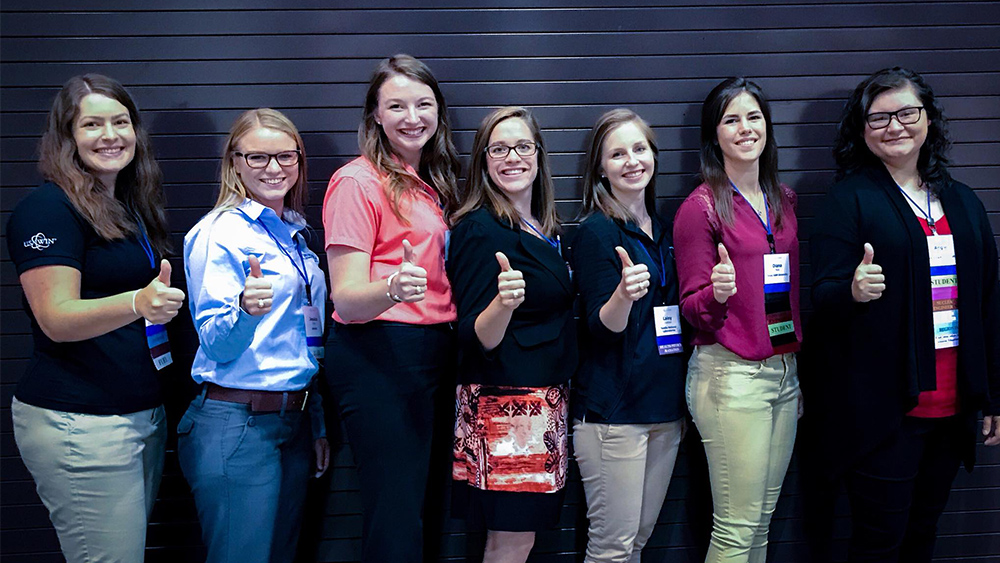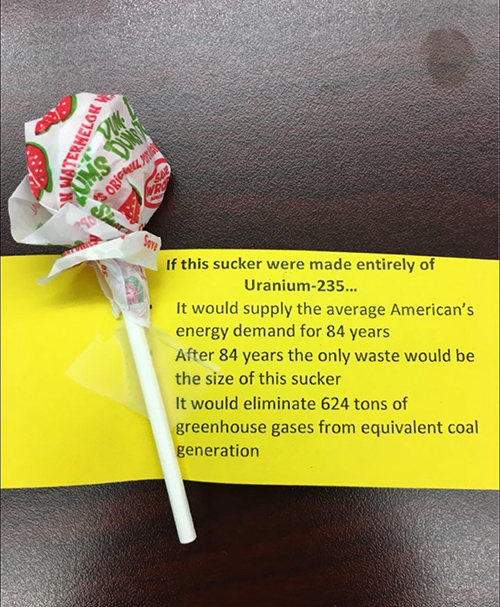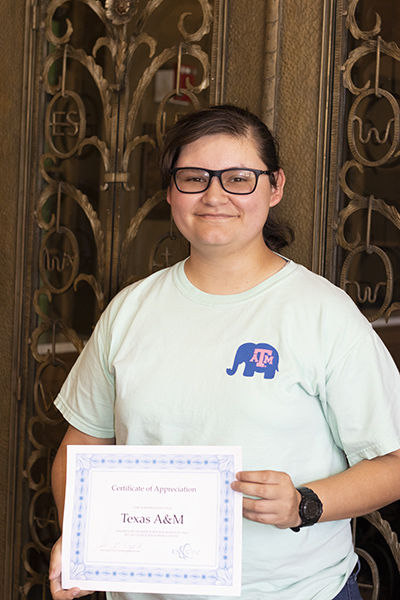
The 2018 Women in Nuclear (WIN) United States conference awarded the Texas A&M University chapter “Most Reactive Student Chapter.” They were awarded a certificate of appreciation for being the “most reactive” student chapter, defined as having the most events and reaching the most people.
Angelina Garcia, a junior and president of WIN for the 2018-19 school year, represented Texas A&M at the WIN conference in Huntsville, Alabama, in August. The conference was hosted by the Tennessee Valley Authority, but a variety of companies were also there, including Framatome and several national laboratories. Garcia said this year’s conference emphasized communication and enhancing visibility.

Nuclear Science Week
One of their most reactive activities is Nuclear Science Week. Each year WIN visits several middle schools in the Bryan and College Station Independent School Districts. According to the online higher education resource BestColleges.com, Texas A&M ranks first in Texas and 12th nationally on a list of colleges that graduate the most women in
“One of our overall goals is to encourage more female STEM majors,” said Garcia. “The most crucial age for young women to decide on a STEM career path is between fifth and ninth grade.”

Winning Women
The Texas A&M WIN chapter, reactivated in 2009, is one of only eight student chapters in the nation. Their faculty advisor is Dr. Karen Kirkland. “Our WIN chapter is special because we have not only a large enough number of women in our department to have a sustainable membership size in WIN, but we also have a large contingent of men who actively participate in chapter activities,” said Kirkland. “We all learn from each other and support each other. In this way, WIN has become an important part of how our department prepares our students for postgraduate life.”
Nuclear engineering companies across the globe also have chapters. Founded in 1993, Women in Nuclear was created to support and encourage women working in nuclear industries throughout the world. WIN Global operates in over 109 countries with approximately 35,000 members. The U.S. WIN’s vision statement is to position the United States for the future of nuclear energy and technology through the advancement of women.
“We do this by supporting each other and engaging in outreach,” said Garcia. “It’s our goal to change the disproportionate number of females to males in the nuclear engineering field.”
“The nuclear industry, and nuclear engineering as a field, has been traditionally white and male,” said Kirkland. “Women are now taking leadership roles in the nuclear industry. For example, the Nuclear Energy Institute now has a female CEO. The nuclear industry provides power to the general population and therefore should be employers of the general population.”
Part of WIN’s recruiting and outreach includes explaining what nuclear engineering is and its diverse career paths. “I knew I wanted to be an engineer, but nuclear was a mystery,” said Garcia. “I researched it more and the public perception was negative, but I realized the truth was different. Nuclear engineering is not bad. It’s not something to be feared. In the words of Spiderman: ‘With great power comes great responsibility.’”
The Texas A&M WIN chapter is open to everybody. “We have roughly 30 students, but are looking to expand,” said Garcia. “The first meeting is a joint meeting with the American Nuclear Society student chapter on Thursday, September 13, from five to seven p.m. in AIEN 301, if new members would like to attend. A representative from Sandia National Labs will be giving a presentation and answering student questions.”
WIN meetings include speakers from the nuclear engineering industry and opportunities to network with other women in the nuclear engineering department. WIN complements the service organization American Nuclear Society chapter with its many outreach opportunities.
Garcia’s advice for new students? “Join an organization,” she said. “Also, never hesitate to ask other students in the department or in your organization for help, even if they’re older or you’re a first-generation student.”